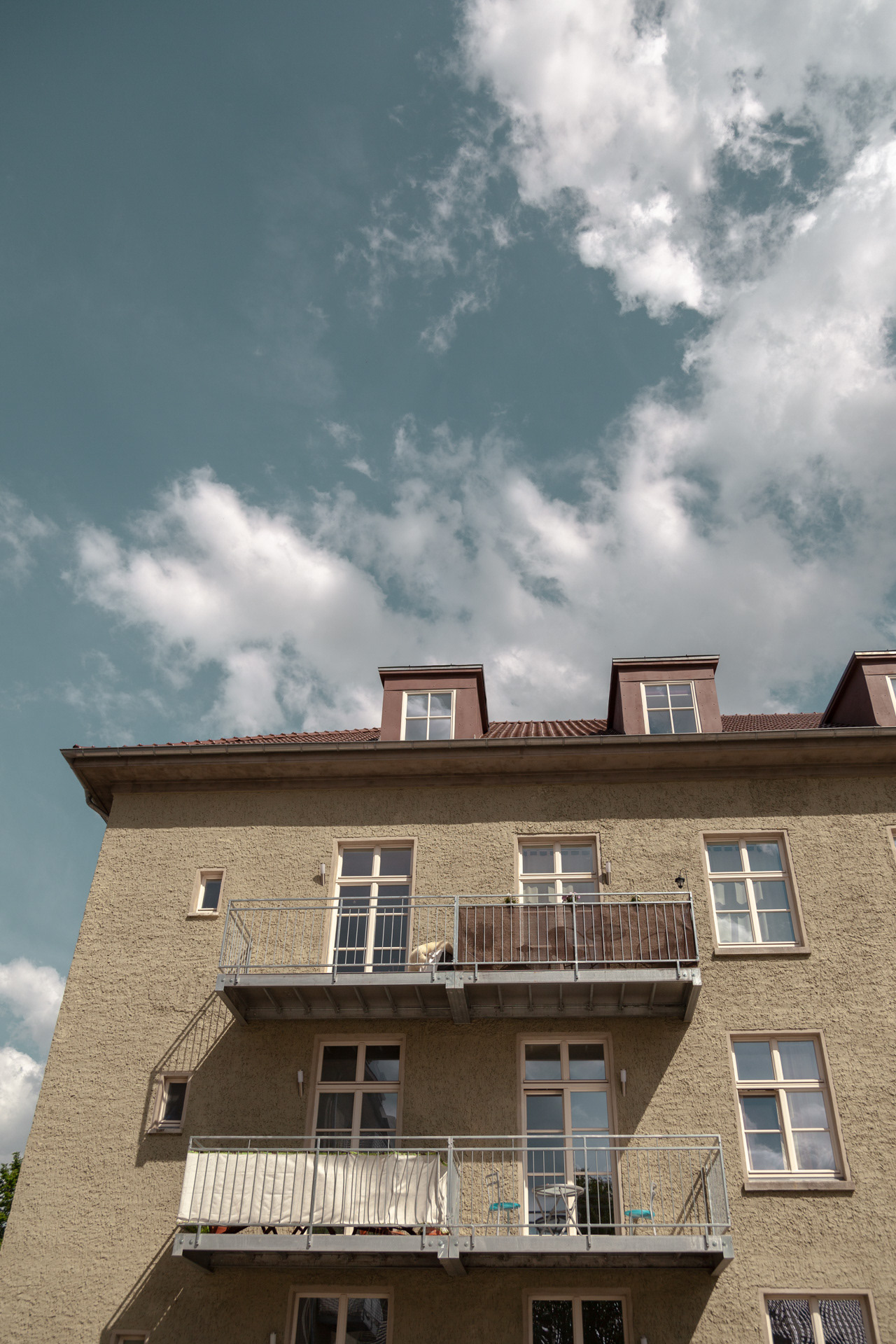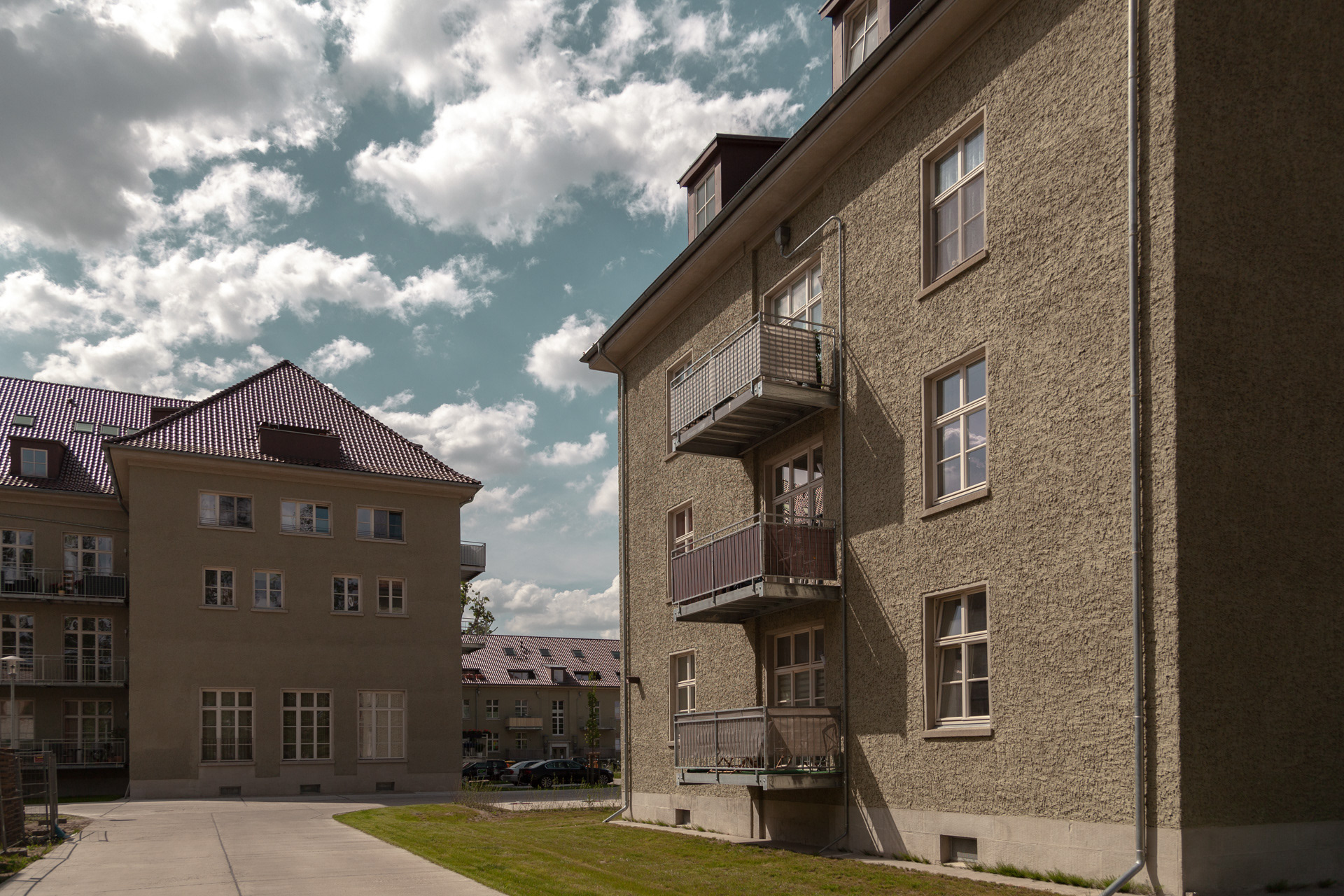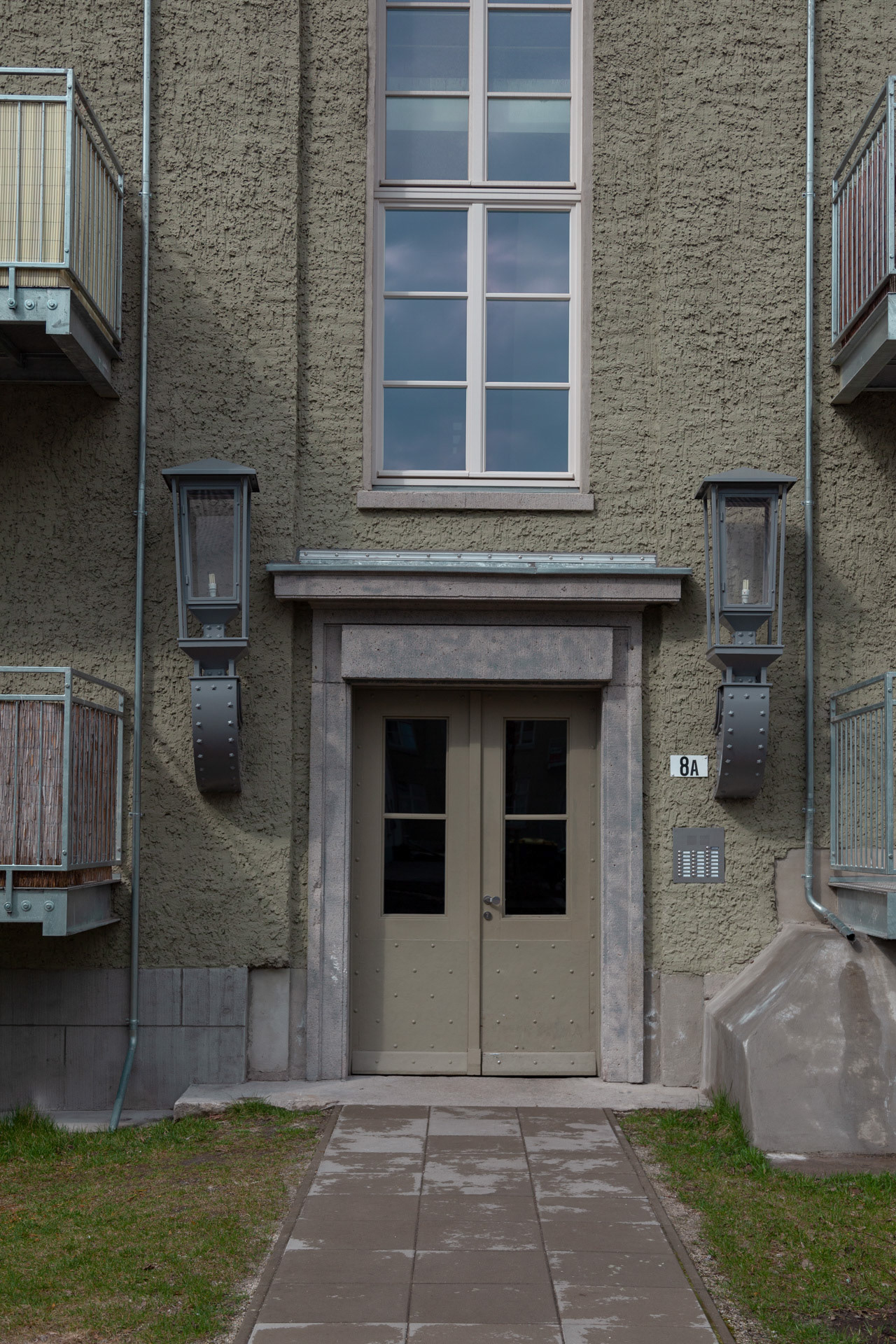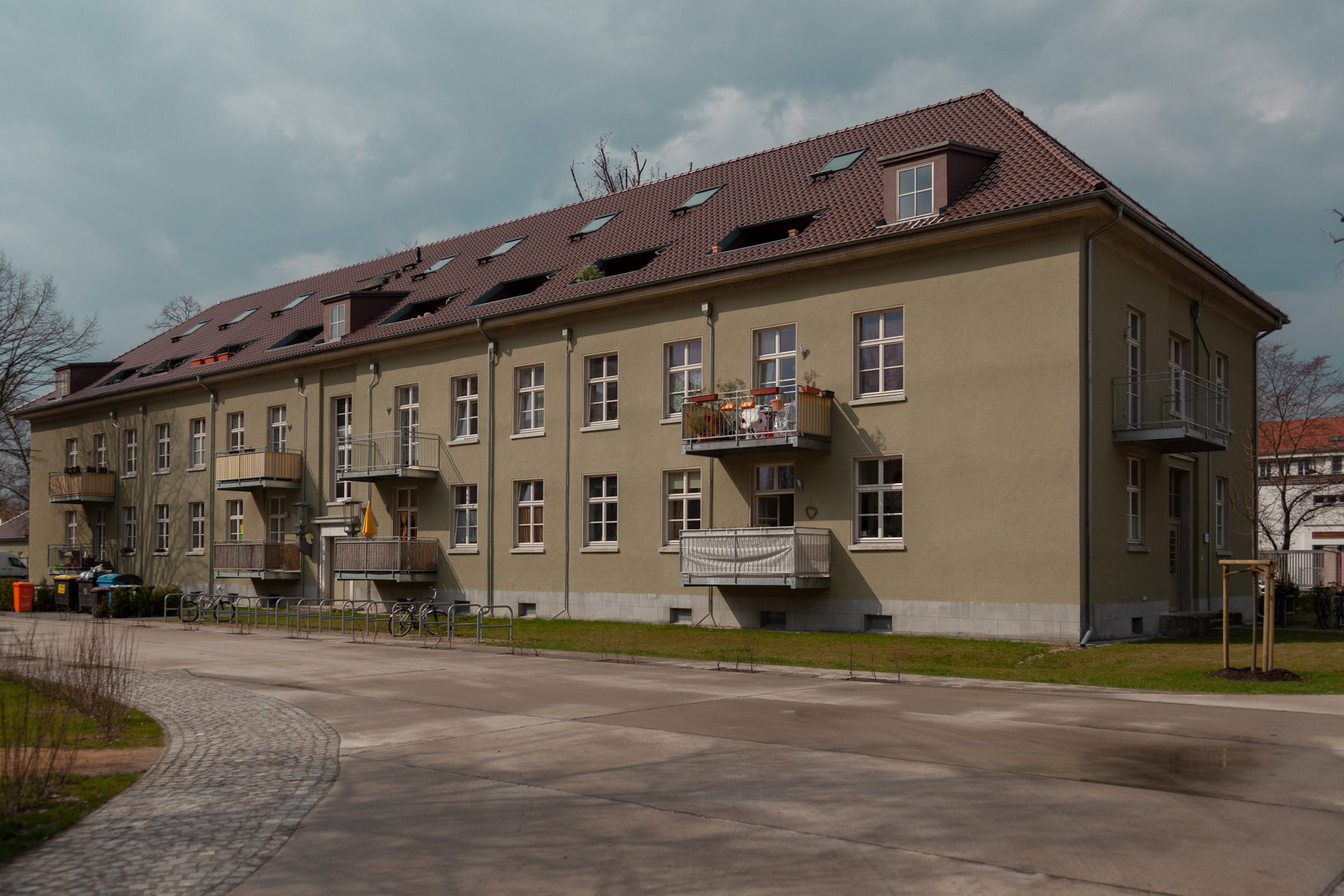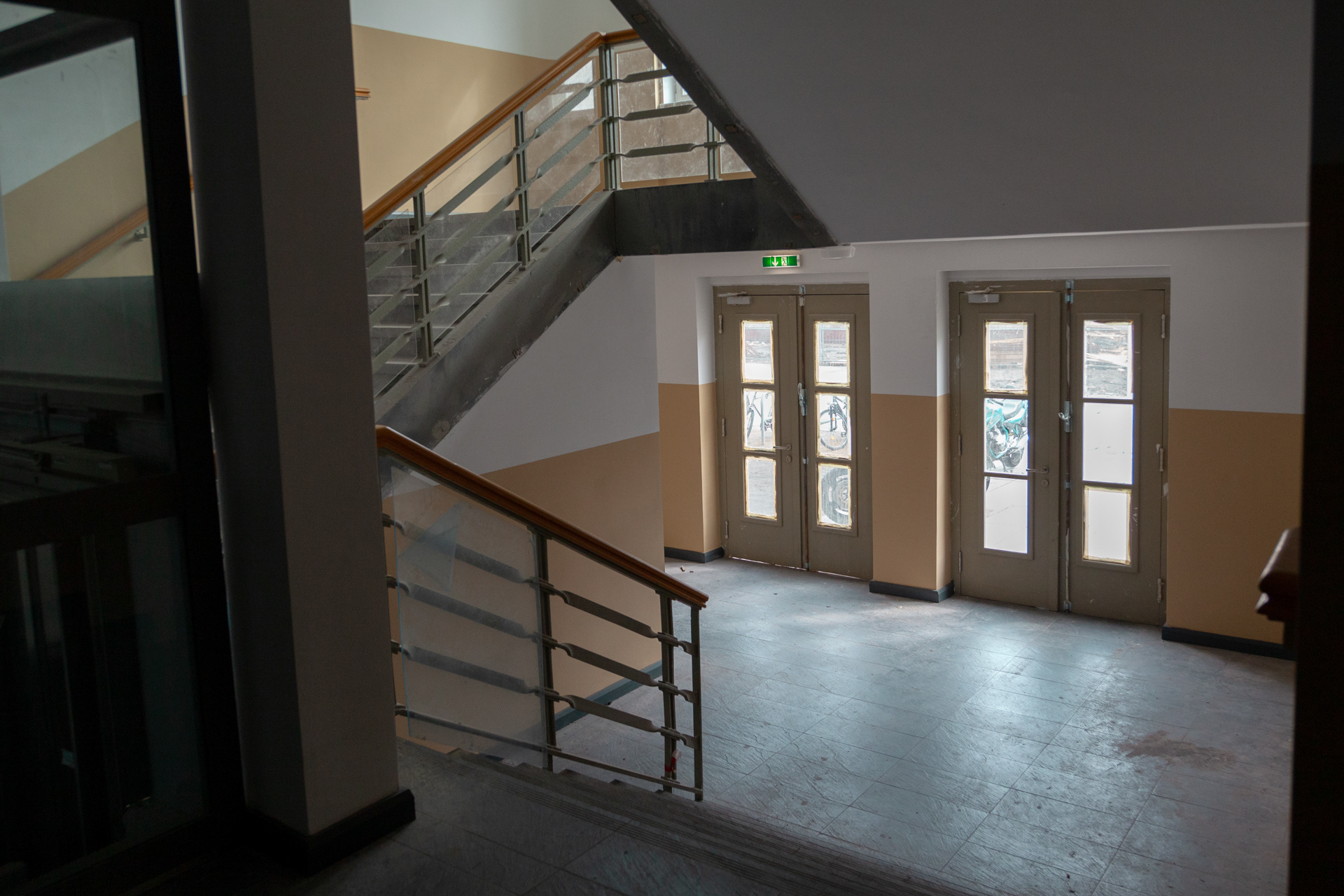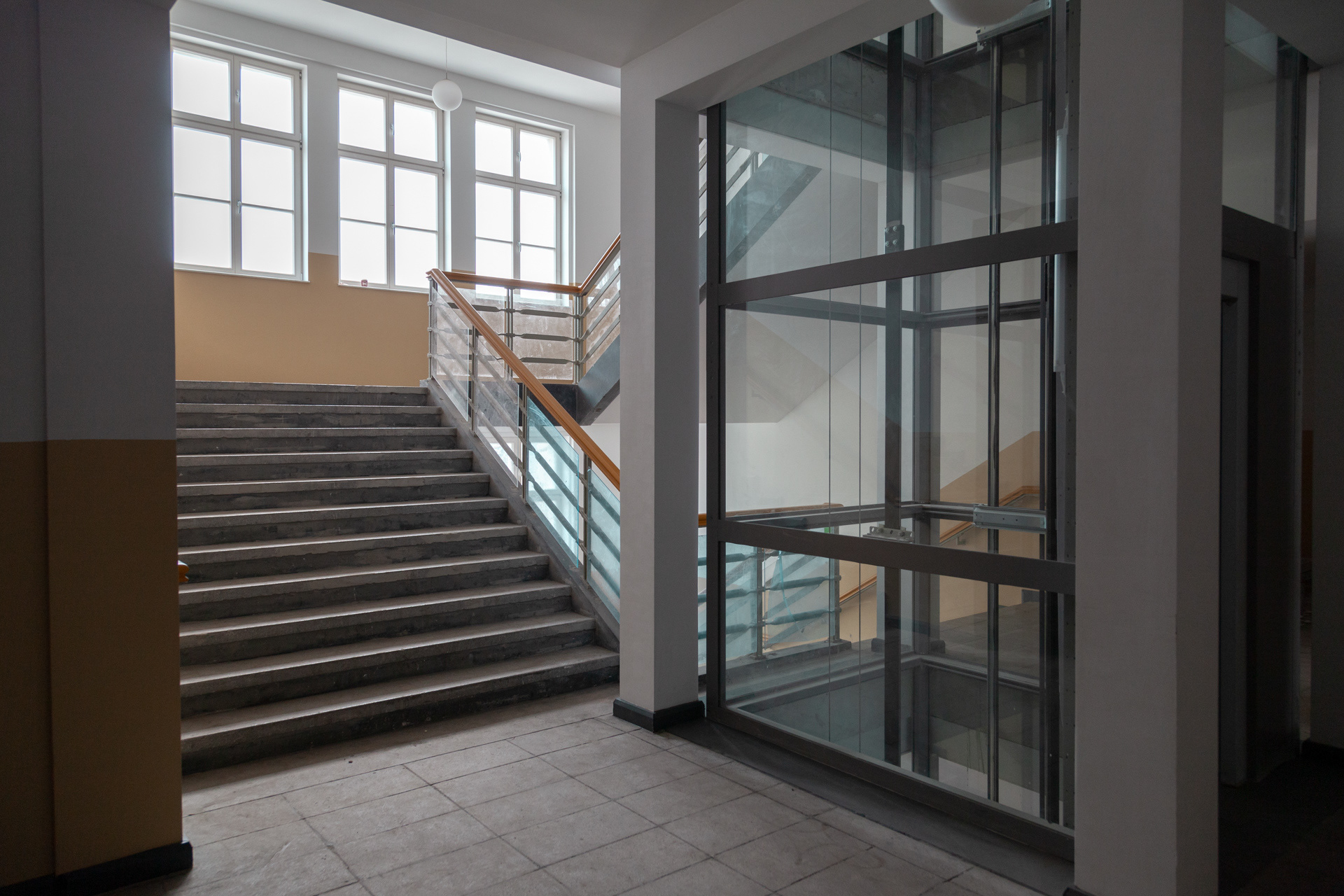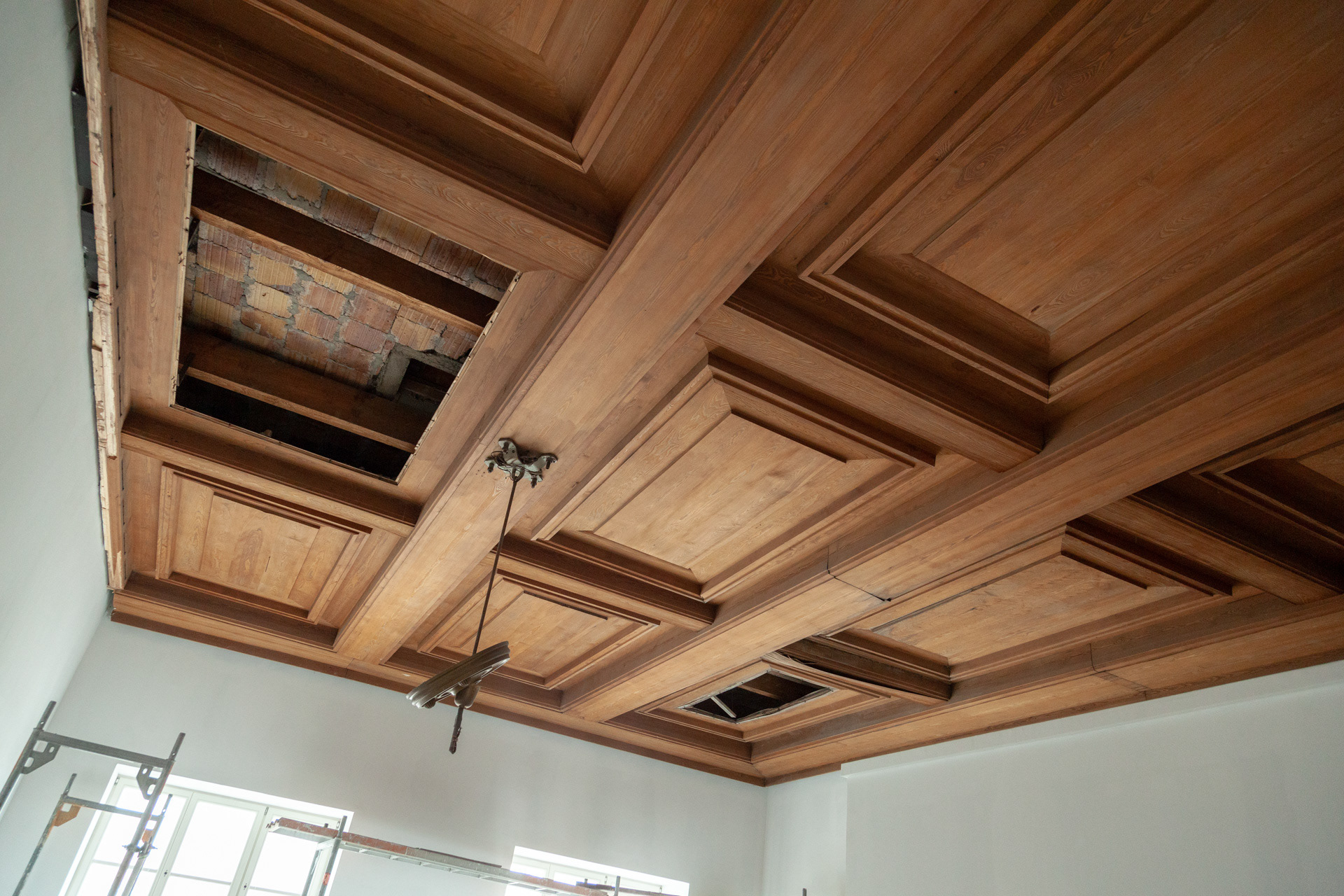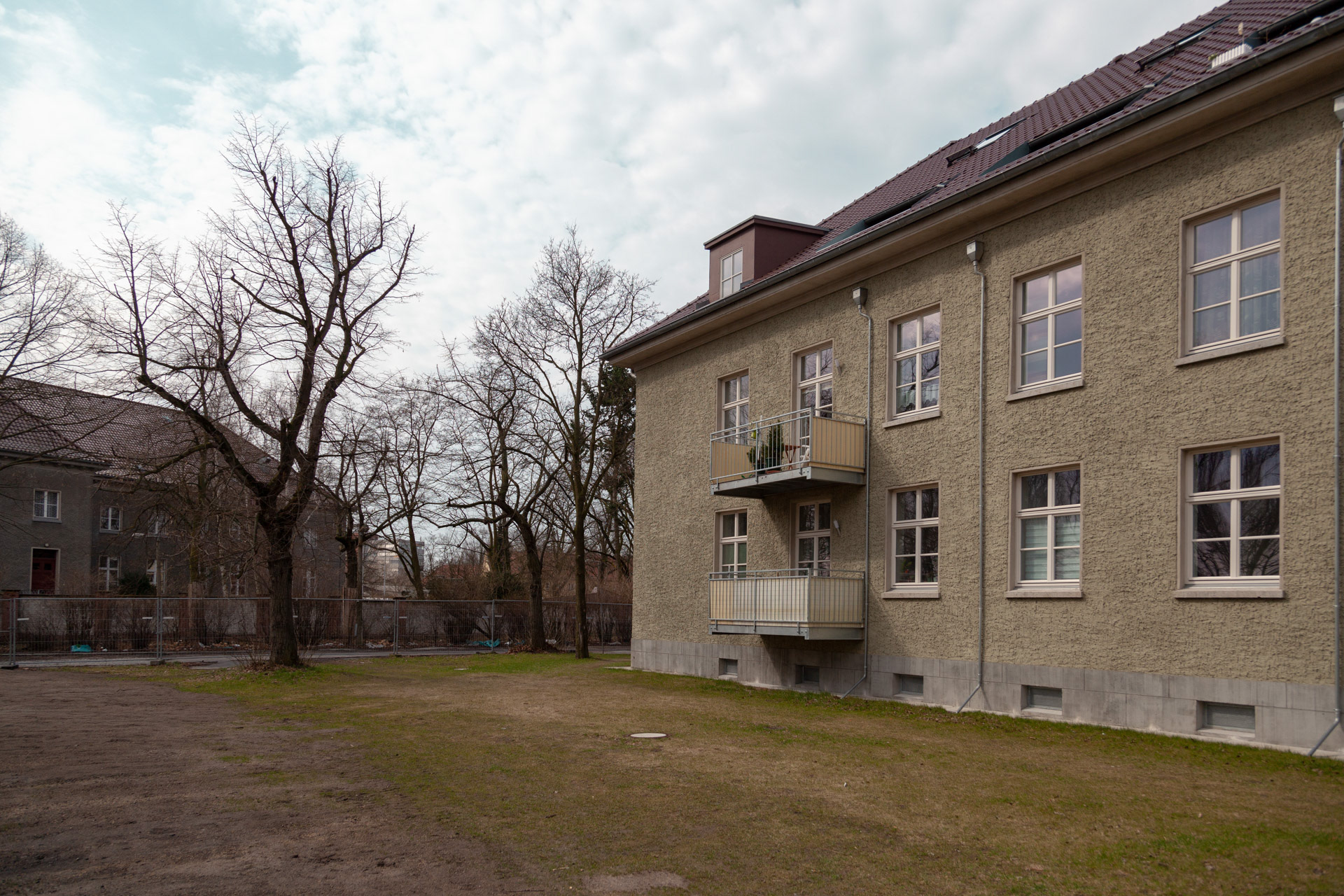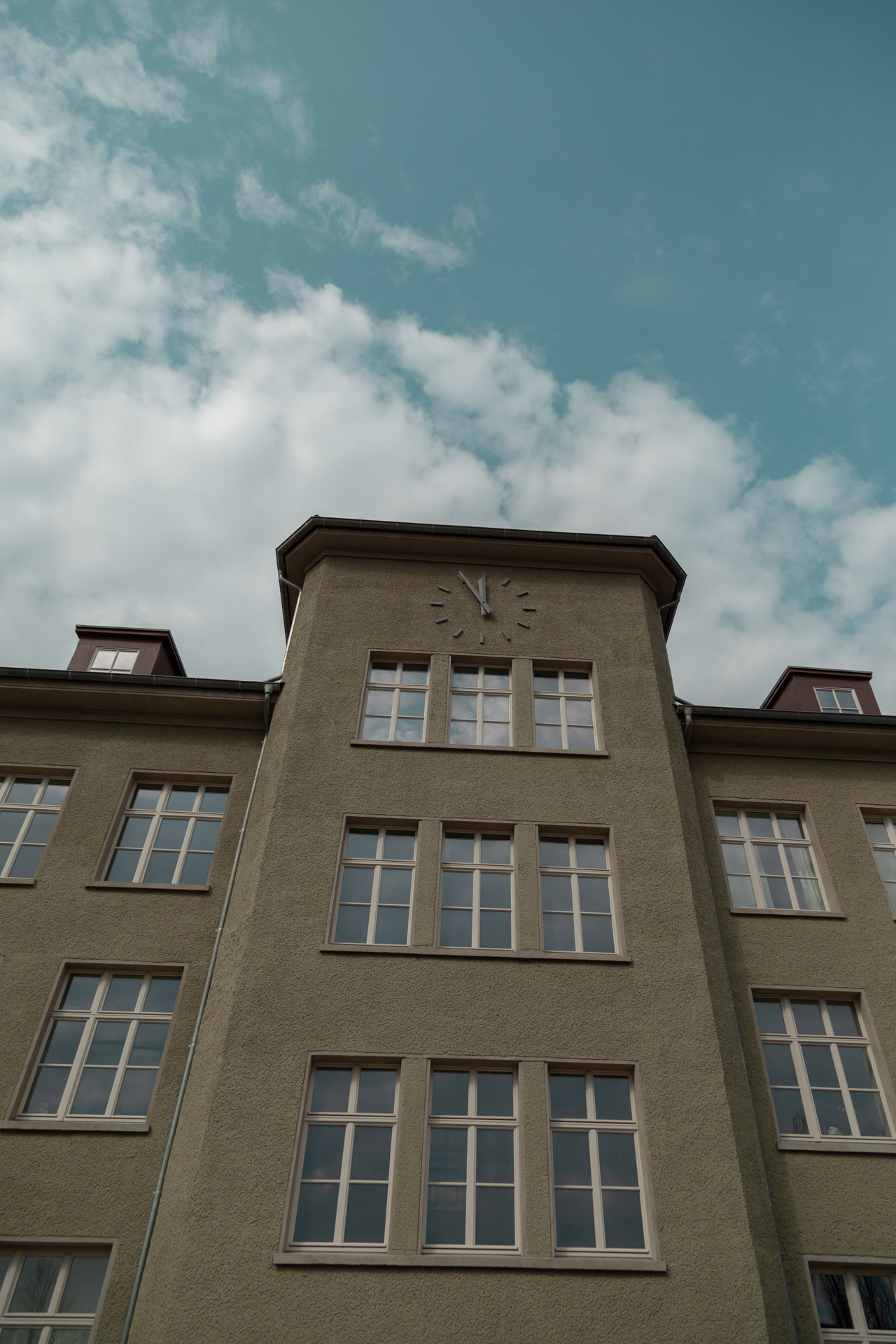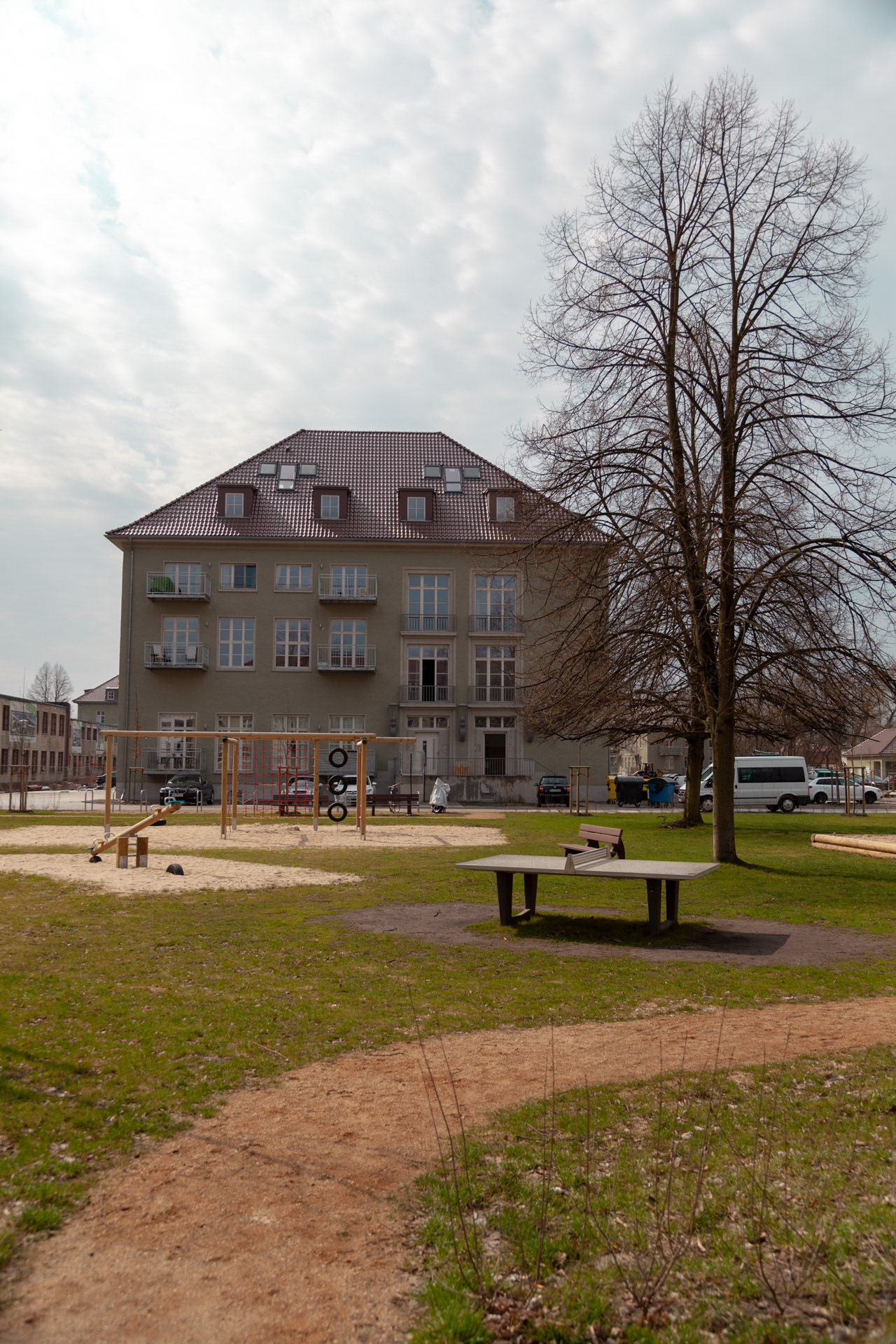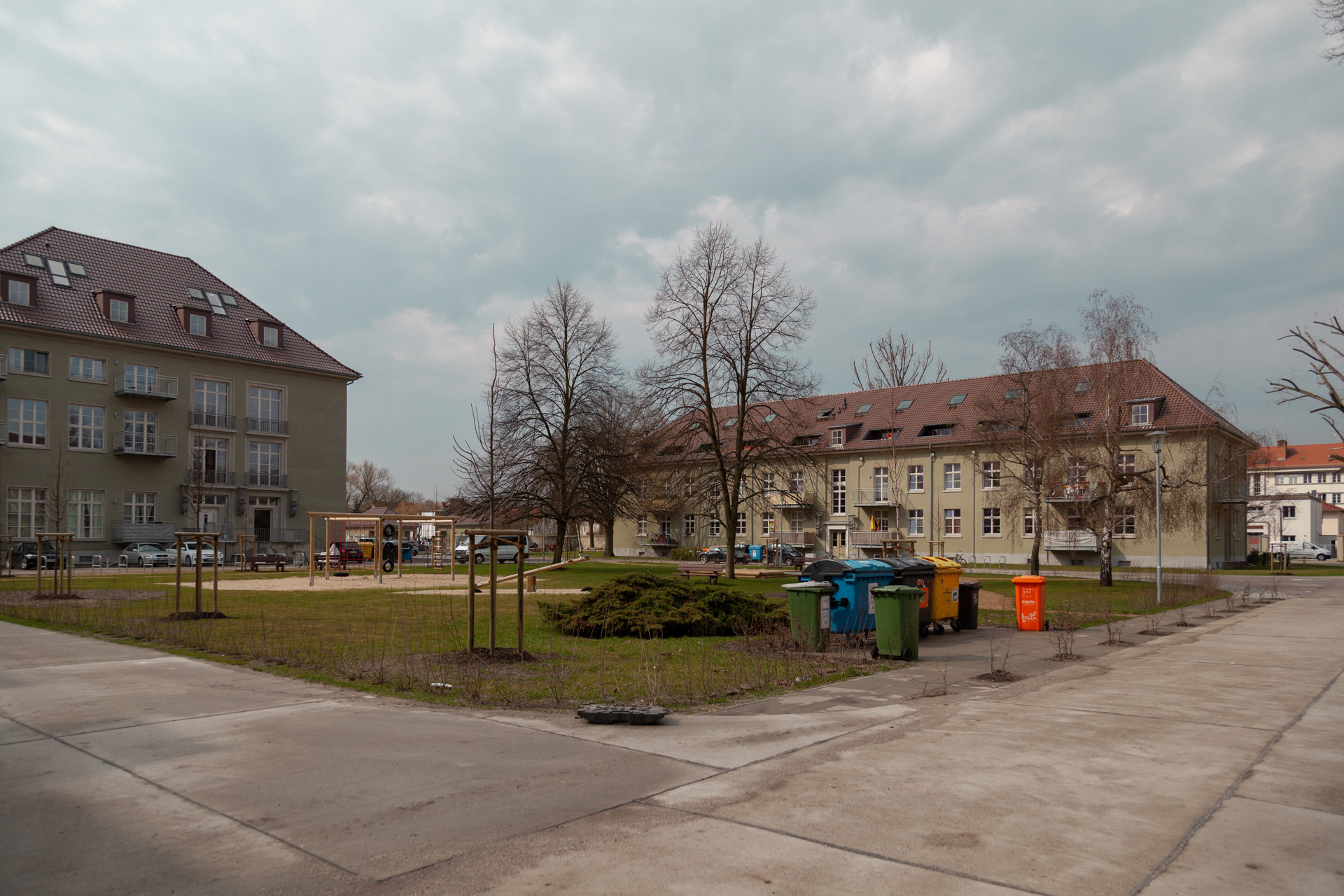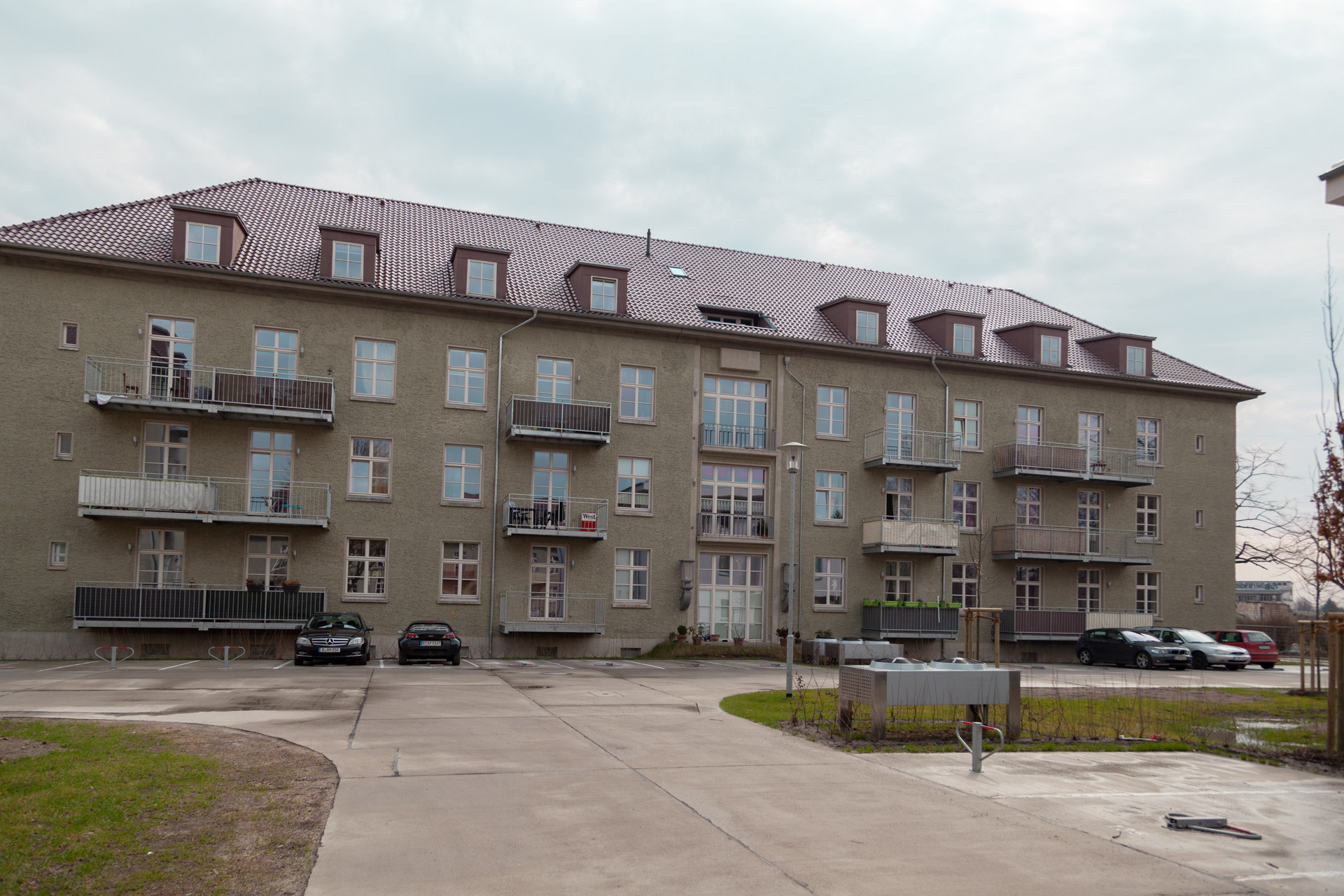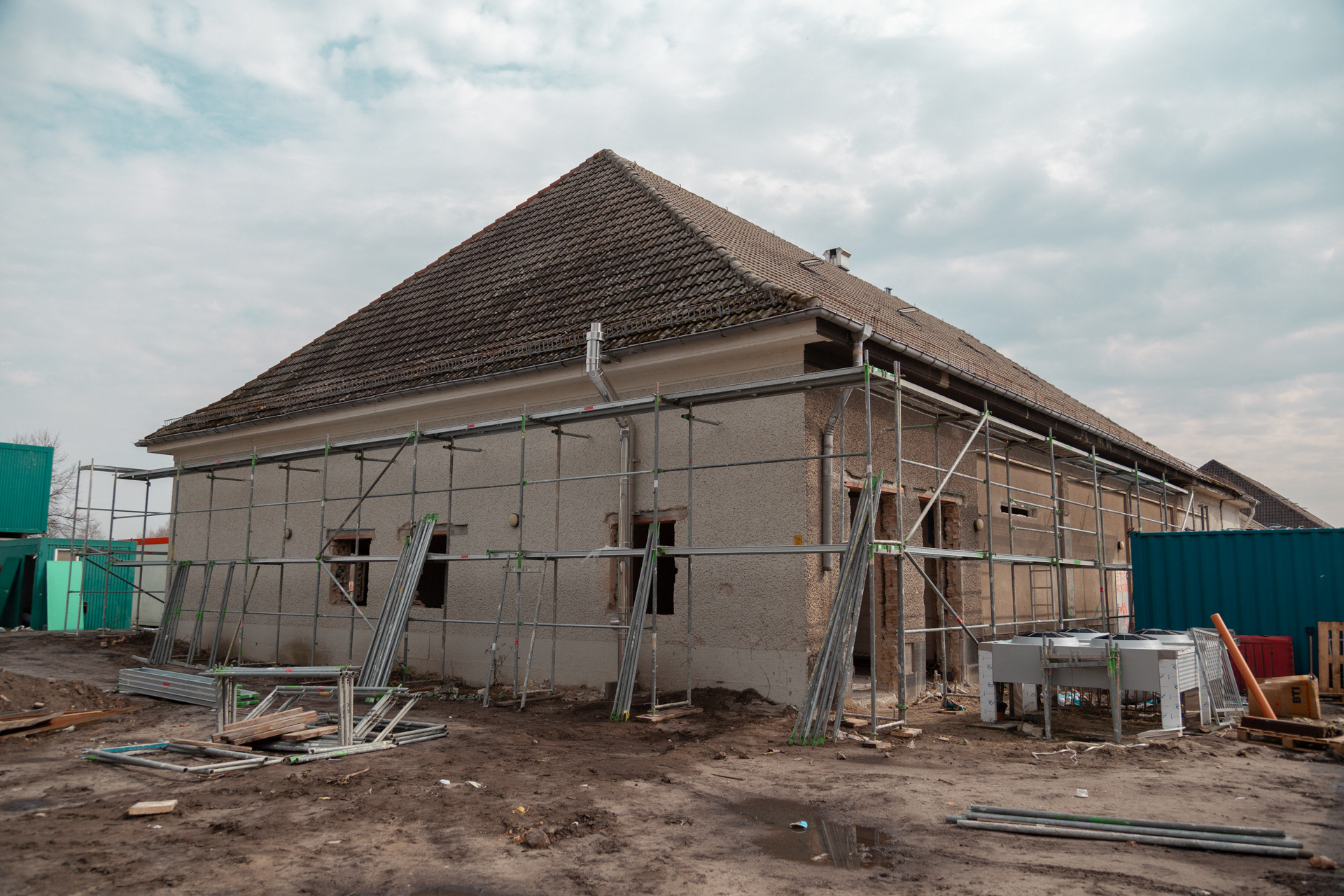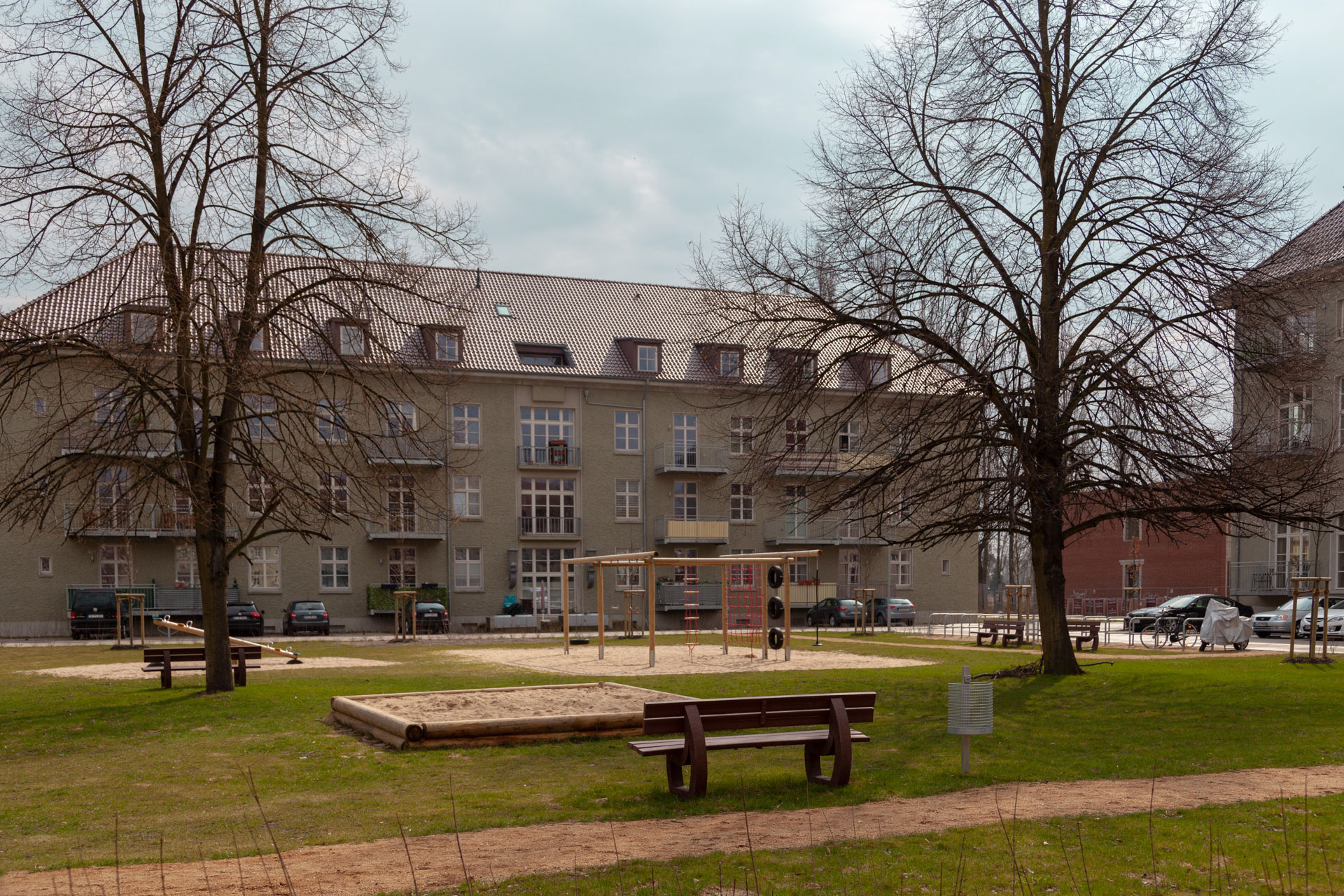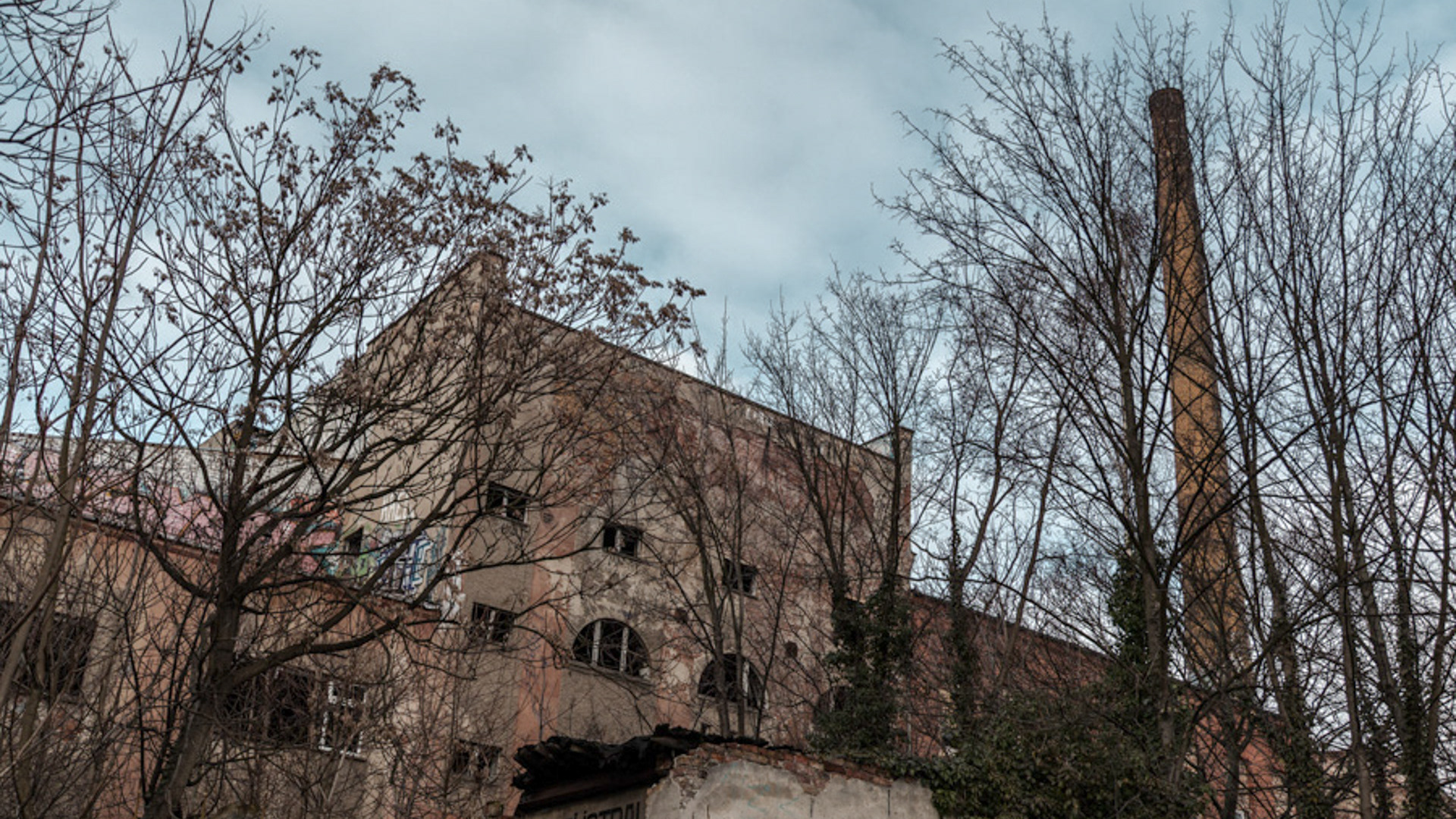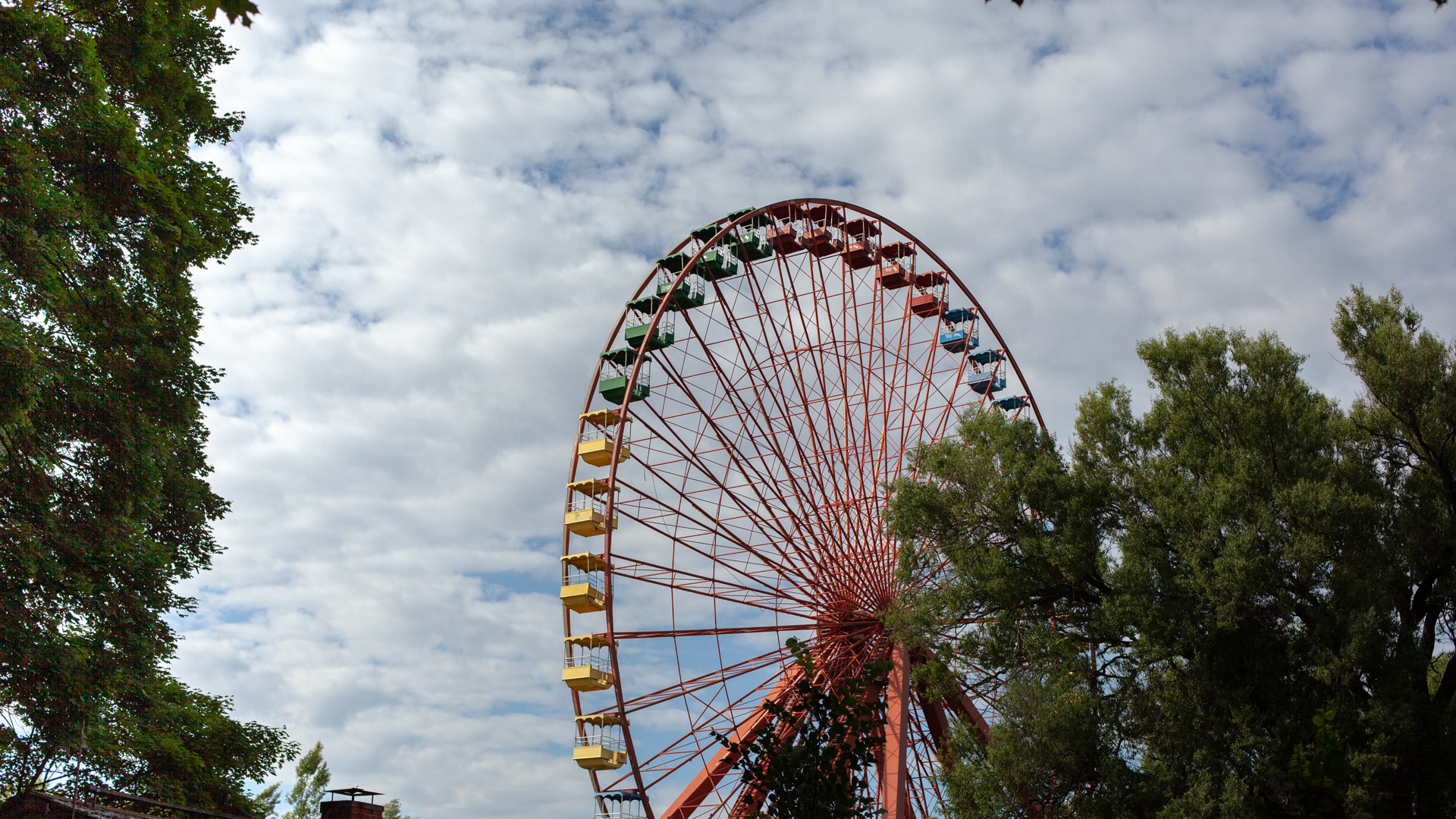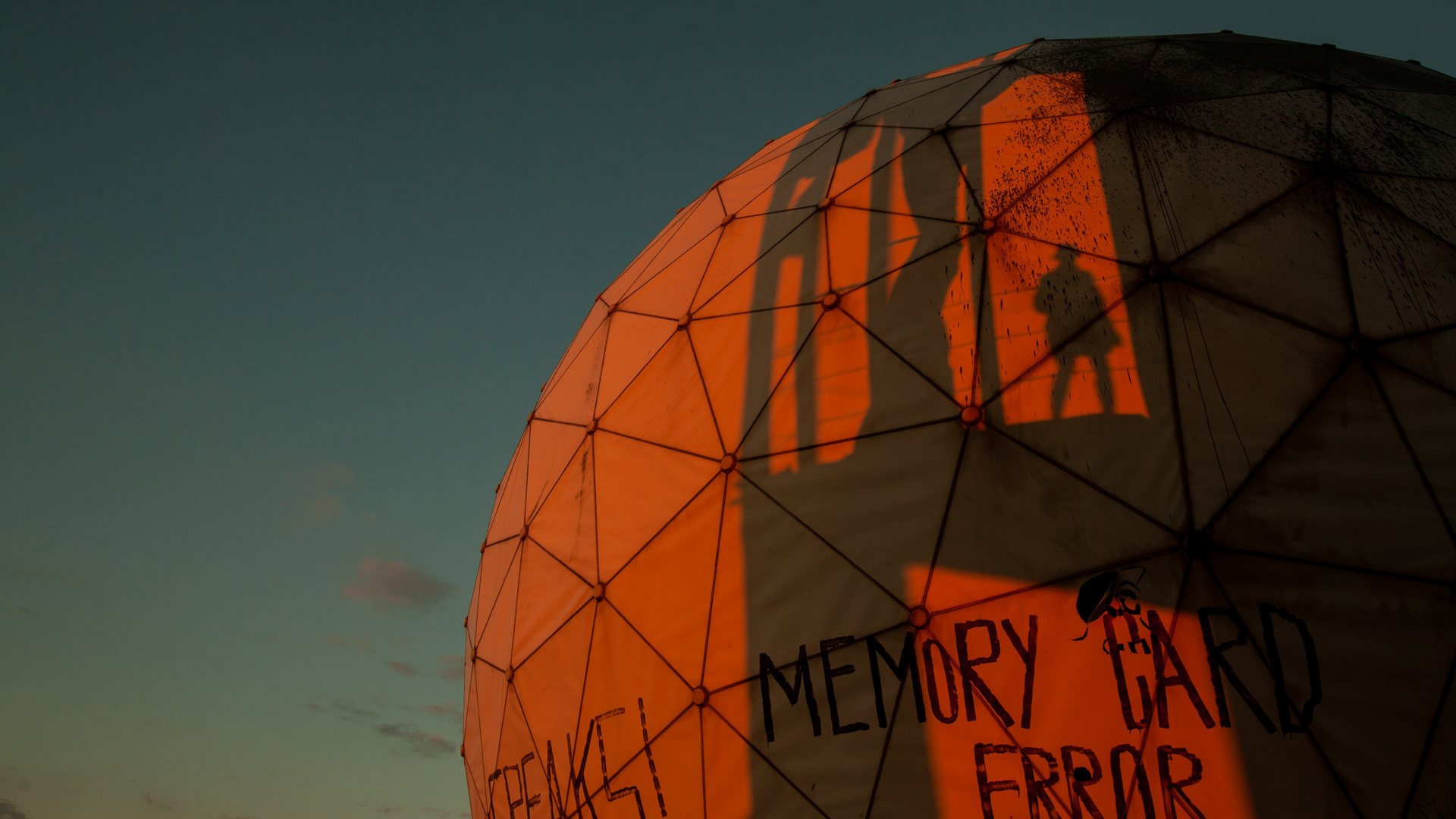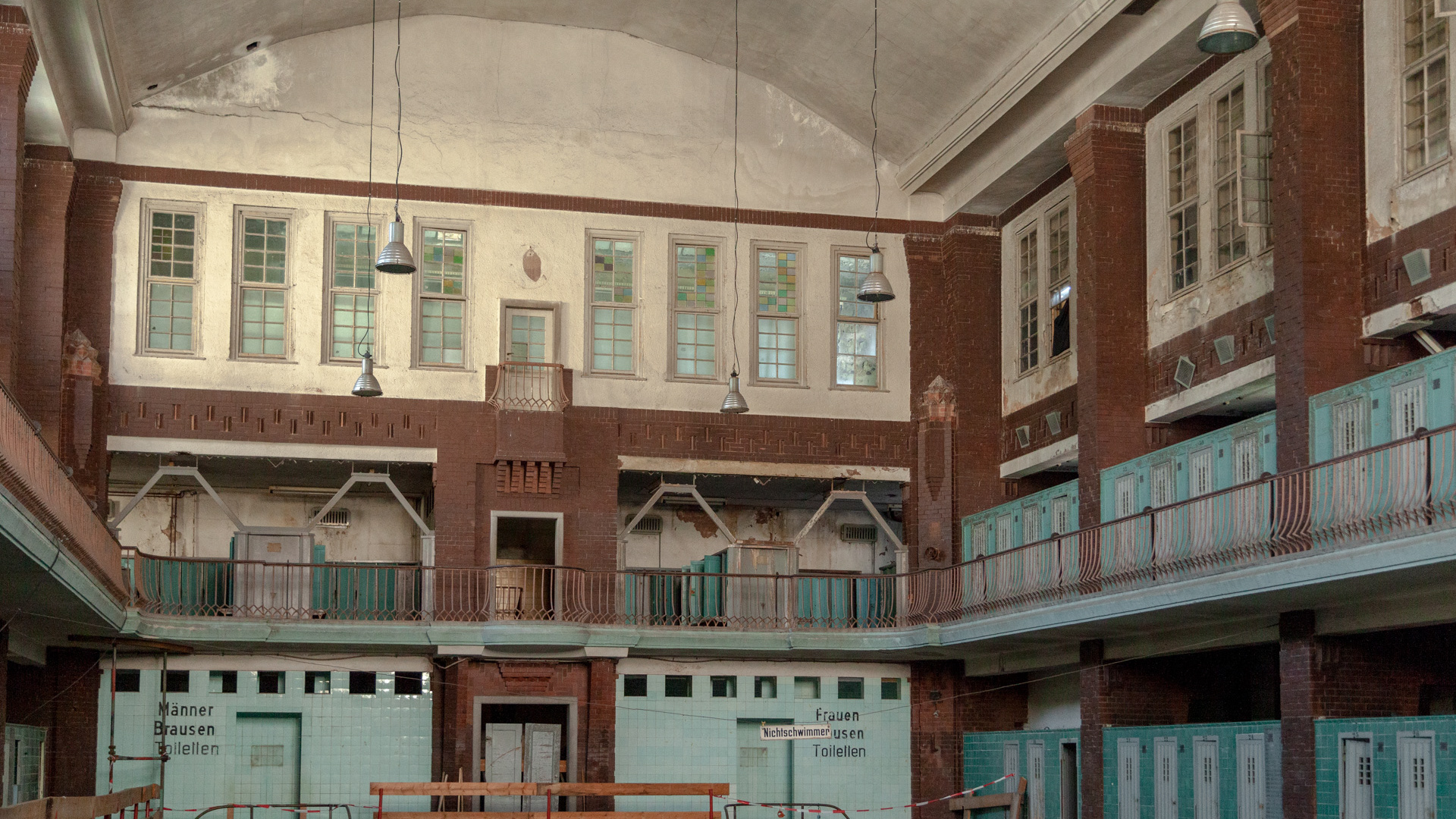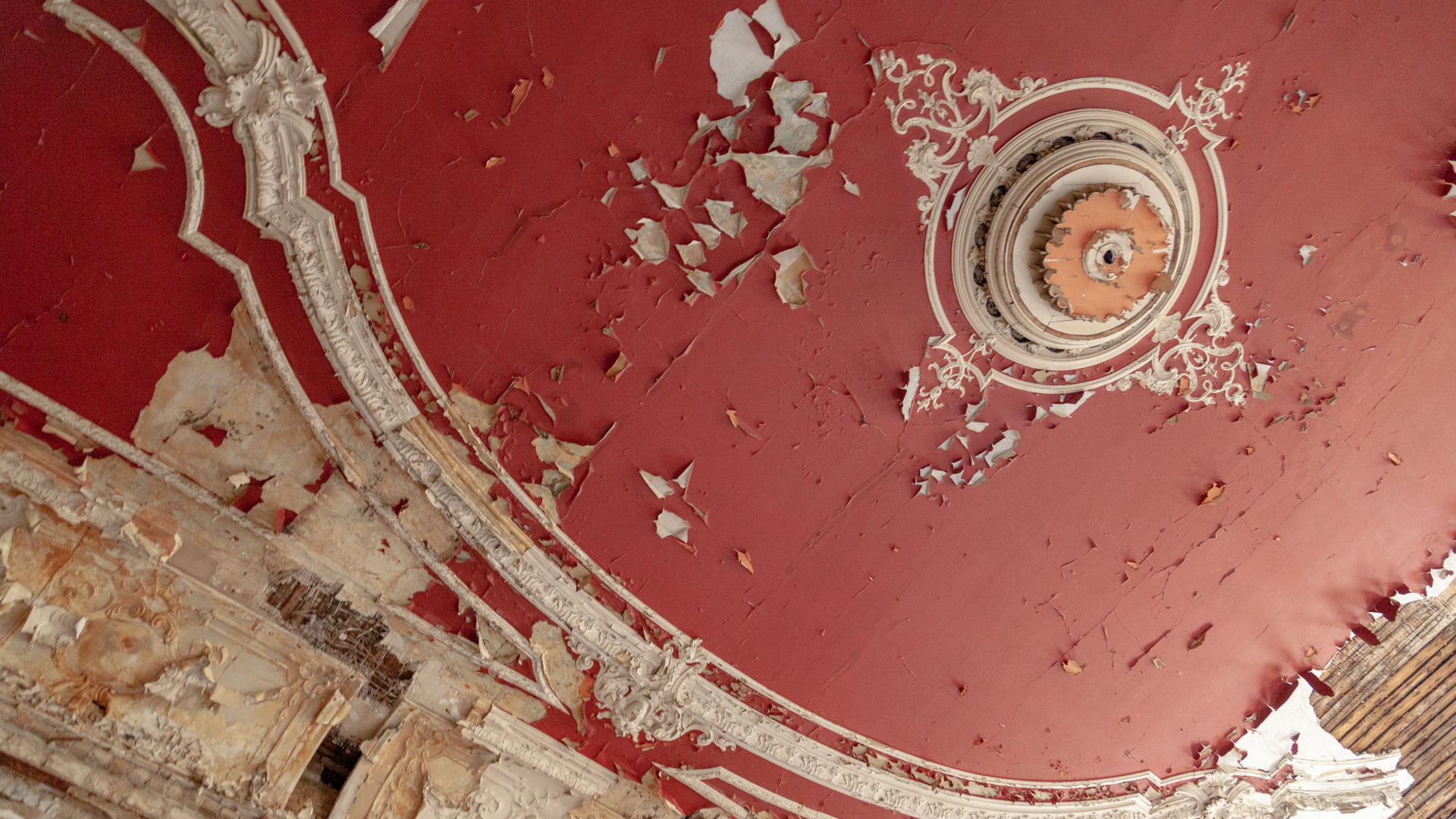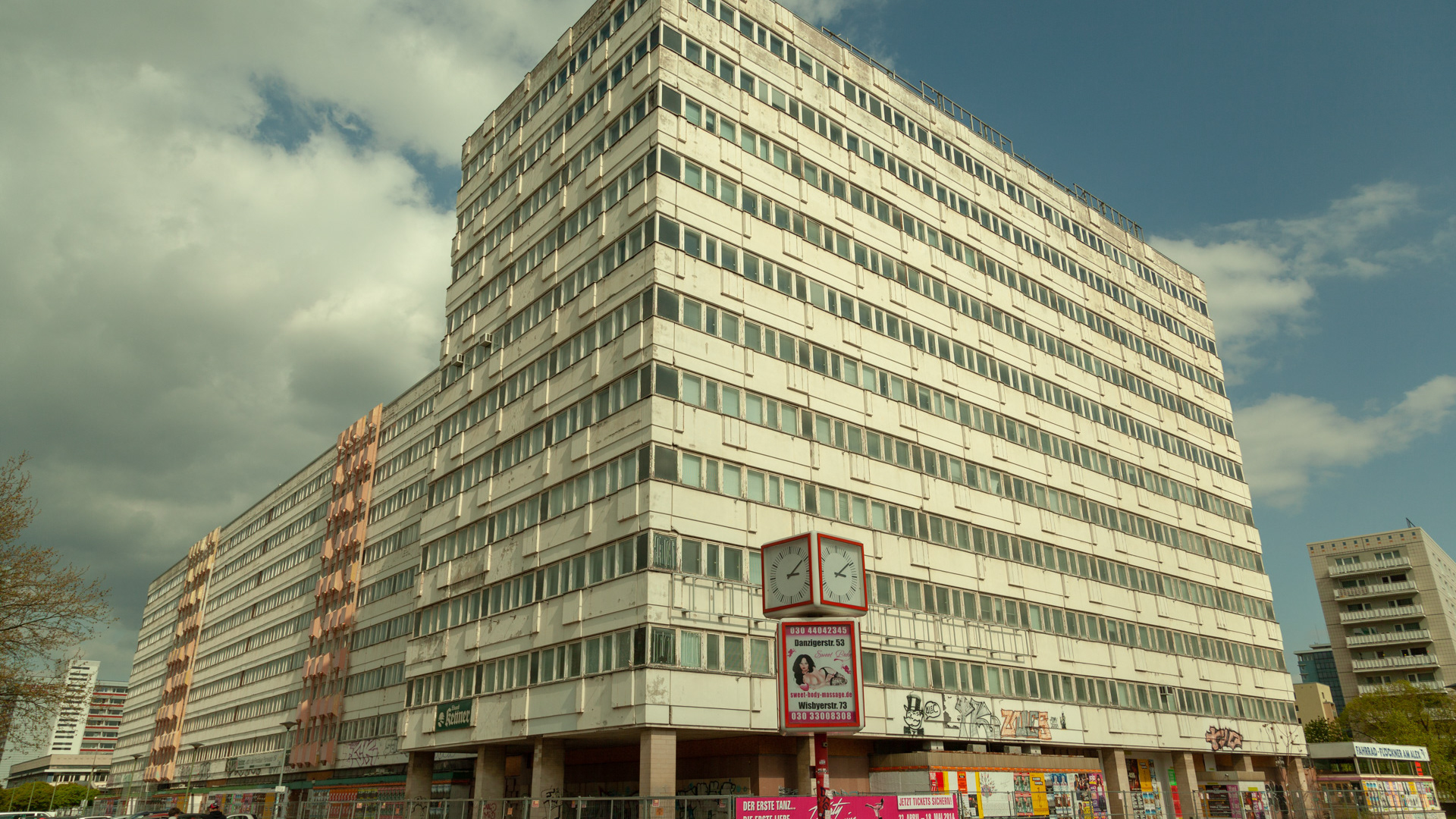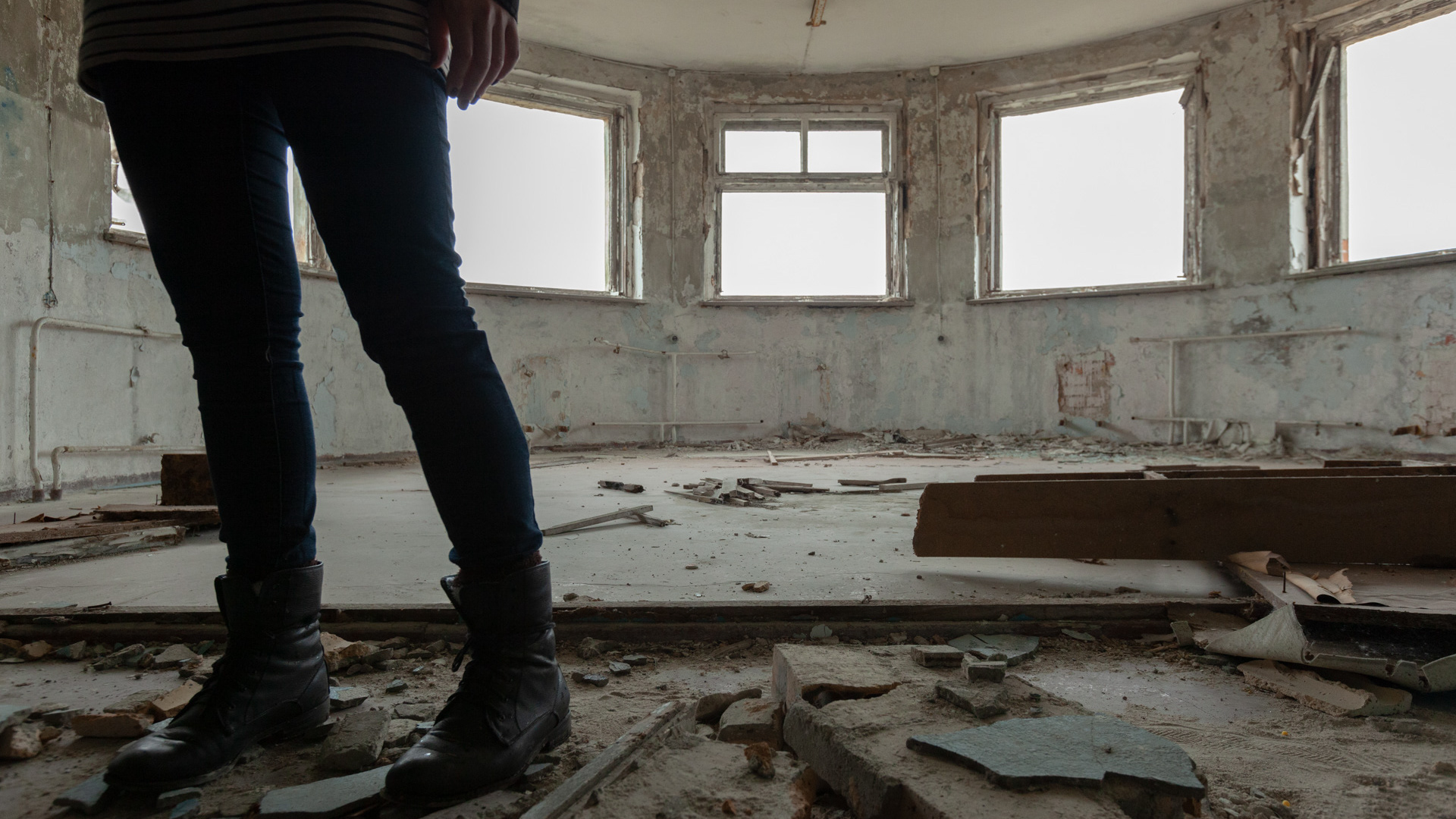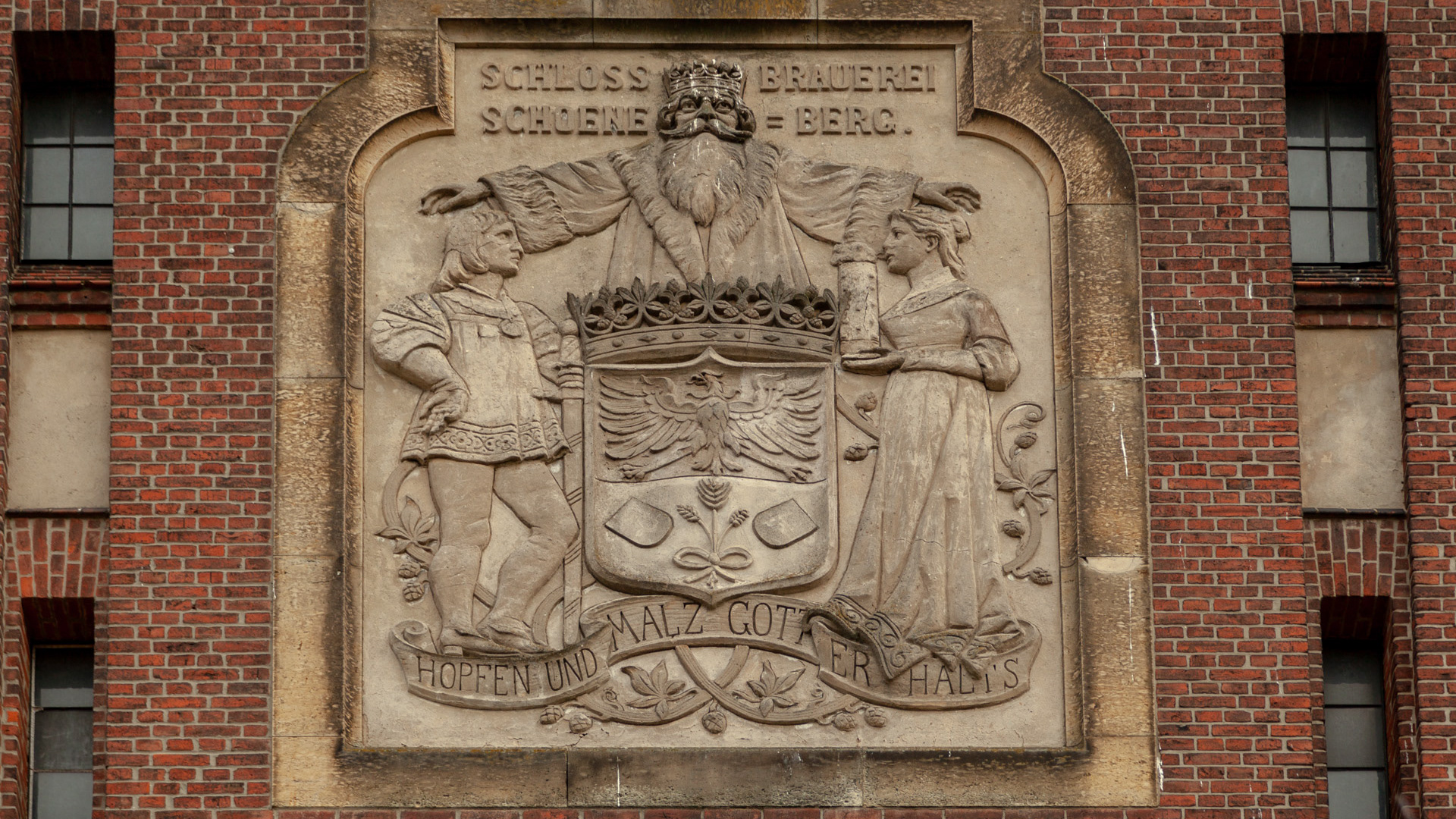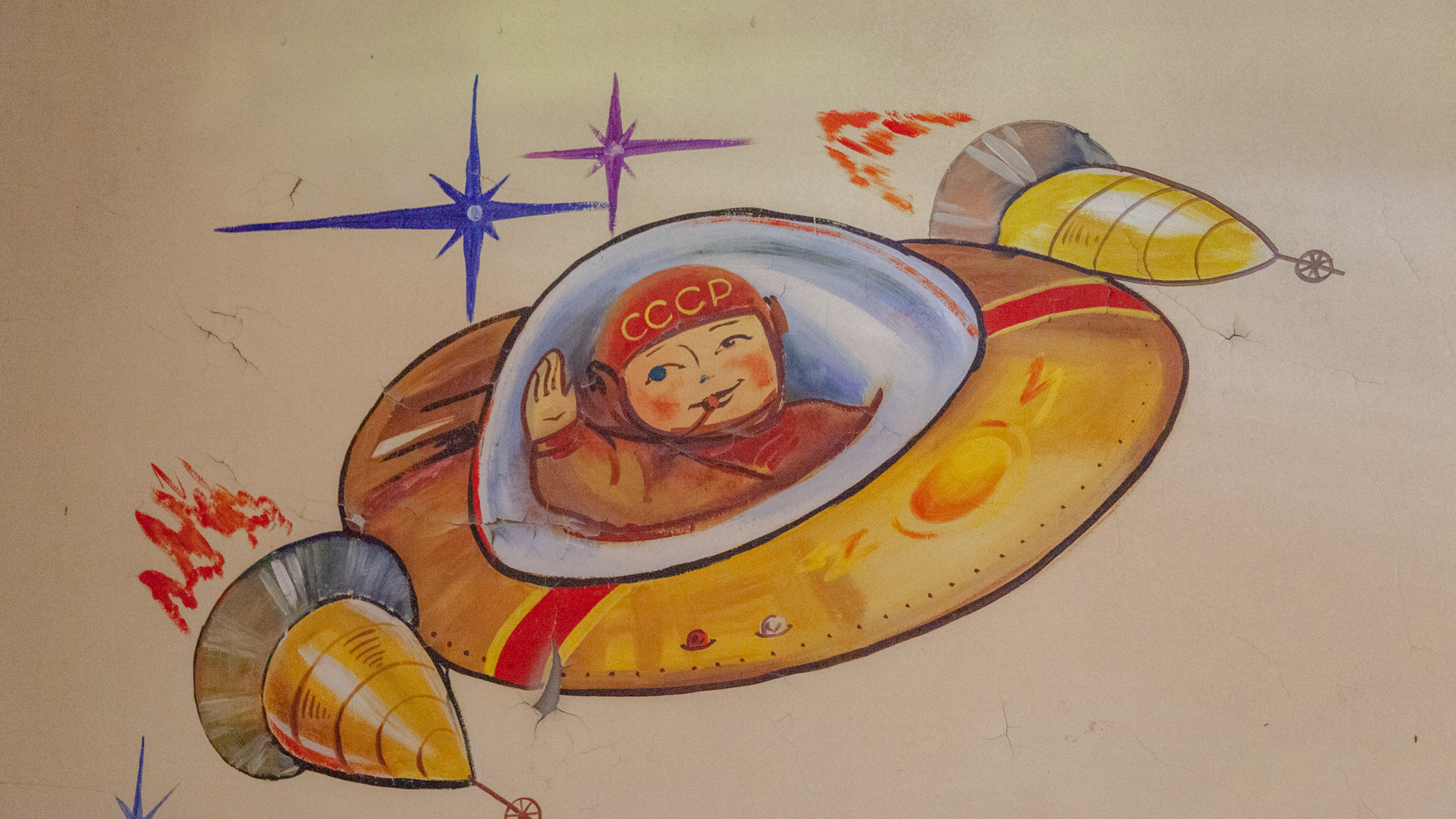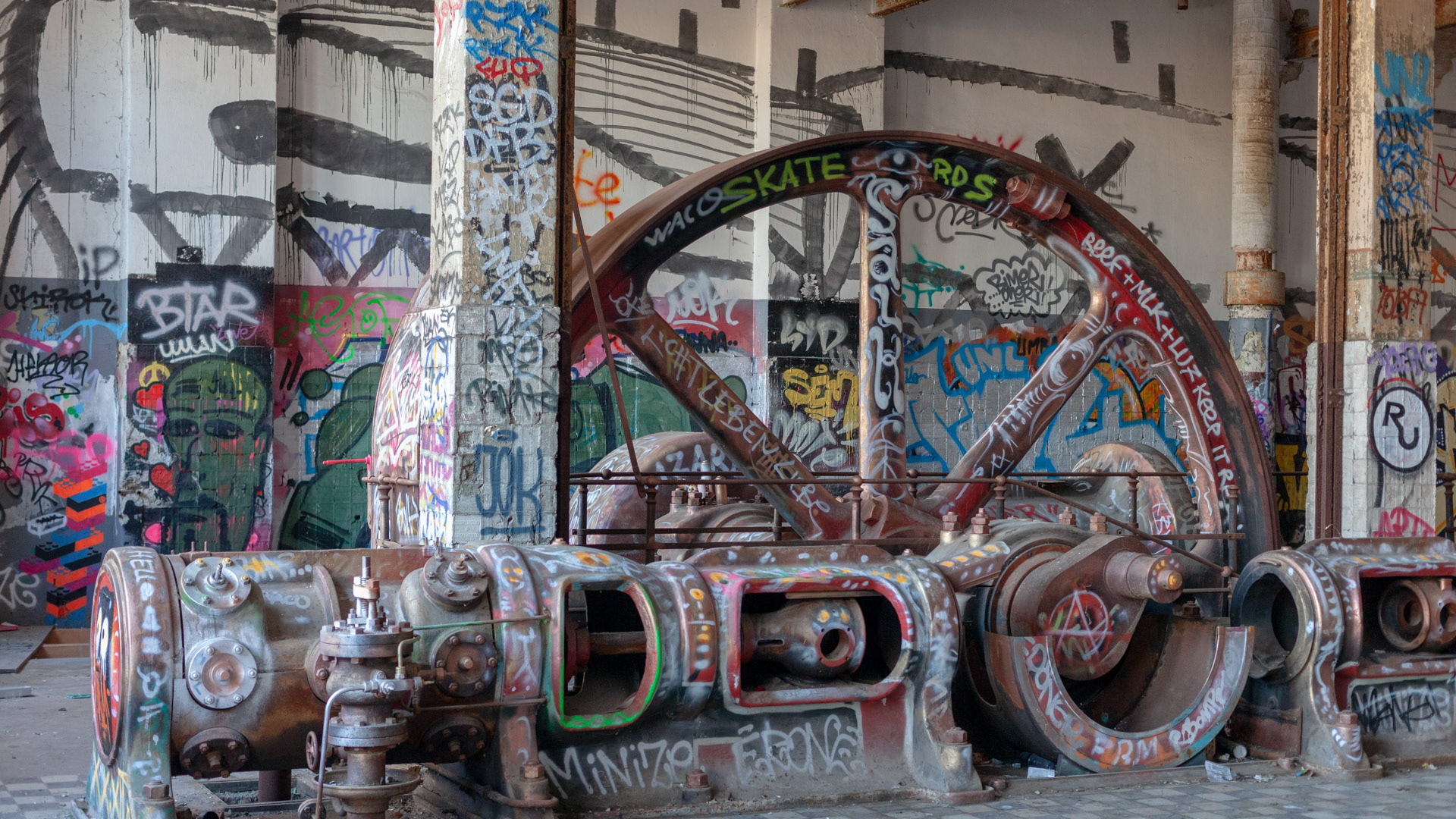On 8 May 1945 here the surrender of the German Armed Forces (Wehrmacht) signed the "Unconditional surrender" pact.
The Karlshorst building was erected between 1936 and 1938 as an officers’ mess for the German Armed Forces’ Pioneer School 1. In the Battle of Berlin at the end of April 1945, the 5th Soviet Shock Army under Colonel General Nikolai Bersarin set up its headquarters there.
After the surrender was first signed on 7 May in Rheims at the headquarters of the Supreme Commander of the Allied Expeditionary Forces, General Dwight D. Eisenhower, it was ratified in Karlshorst in the evening of 8 to 9 May by Field Marshal Wilhelm Keitel, General Admiral Hans-Georg von Friedeburg and Colonel General Hans-Jürgen Stumpff. Their signatures under the unconditional surrender were accepted by Marshal Georgy Zhukov, Soviet Supreme Commander, and for the Western Headquarters Sir Arthur Tedder, British Air Marshal and Eisenhower’s deputy, with U.S. General Carl Spaatz and French General Jean de Lattre de Tassigny as witnesses. These signatures ended the war in Europe and at the same time marked the boundary between two epochs of 20th century European history.
From 1945 to 1949 the building was the main office of the Soviet Military Administration. At that location on 10 October 1949 General Vasily Chuikov granted legal state authority to the first government of the German Democratic Republic (GDR). Between 1967 and 1994 a museum of the Soviet Armed Forces (“Museum of the Unconditional Surrender of Fascist Germany in the Great Patriotic War 1941-1945”) was established there in remembrance of the Battle of Berlin and the German surrender.
The KGB residency in East Berlin-Karlshorst was the largest in the world; it produced as much intelligence as an entire directorate back in Moscow thanks to East German efforts. But none of this was known in the West until after the Berlin Wall had fell.
The buildings on the side of the Museum had been left for a long time abandoned, now the process of renovation has started and as usual in Berlin, the former KGB buildings are now appartments.
The Karlshorst building was erected between 1936 and 1938 as an officers’ mess for the German Armed Forces’ Pioneer School 1. In the Battle of Berlin at the end of April 1945, the 5th Soviet Shock Army under Colonel General Nikolai Bersarin set up its headquarters there.
After the surrender was first signed on 7 May in Rheims at the headquarters of the Supreme Commander of the Allied Expeditionary Forces, General Dwight D. Eisenhower, it was ratified in Karlshorst in the evening of 8 to 9 May by Field Marshal Wilhelm Keitel, General Admiral Hans-Georg von Friedeburg and Colonel General Hans-Jürgen Stumpff. Their signatures under the unconditional surrender were accepted by Marshal Georgy Zhukov, Soviet Supreme Commander, and for the Western Headquarters Sir Arthur Tedder, British Air Marshal and Eisenhower’s deputy, with U.S. General Carl Spaatz and French General Jean de Lattre de Tassigny as witnesses. These signatures ended the war in Europe and at the same time marked the boundary between two epochs of 20th century European history.
From 1945 to 1949 the building was the main office of the Soviet Military Administration. At that location on 10 October 1949 General Vasily Chuikov granted legal state authority to the first government of the German Democratic Republic (GDR). Between 1967 and 1994 a museum of the Soviet Armed Forces (“Museum of the Unconditional Surrender of Fascist Germany in the Great Patriotic War 1941-1945”) was established there in remembrance of the Battle of Berlin and the German surrender.
The KGB residency in East Berlin-Karlshorst was the largest in the world; it produced as much intelligence as an entire directorate back in Moscow thanks to East German efforts. But none of this was known in the West until after the Berlin Wall had fell.
The buildings on the side of the Museum had been left for a long time abandoned, now the process of renovation has started and as usual in Berlin, the former KGB buildings are now appartments.
